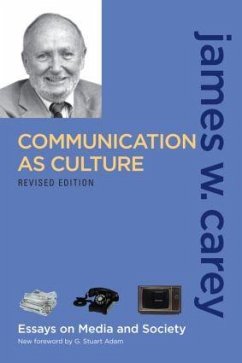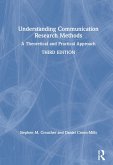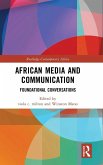Questions the American tradition of focusing only on mass communication's function as a means of social and political control. This title makes a case for examining the content of a communication - the meaning of symbols, not only the motives that originate them or the purposes they serve.
James W. Carey maintains that communication is not merely the transmission of information; reminding the reader of the link between the words "communication" and "community," he broadens his definition to include the drawing-together of a people that is culture. The revised edition of this classic text includes a new critical foreword by G. Stuart Adam that explains Carey's fundamental role in transforming the study of mass communication to include a cultural perspective and connects his classic essays with contemporary media issues and trends. This edition also adds a new, complete bibliography of all of Carey's writings.
Hinweis: Dieser Artikel kann nur an eine deutsche Lieferadresse ausgeliefert werden.
James W. Carey maintains that communication is not merely the transmission of information; reminding the reader of the link between the words "communication" and "community," he broadens his definition to include the drawing-together of a people that is culture. The revised edition of this classic text includes a new critical foreword by G. Stuart Adam that explains Carey's fundamental role in transforming the study of mass communication to include a cultural perspective and connects his classic essays with contemporary media issues and trends. This edition also adds a new, complete bibliography of all of Carey's writings.
Hinweis: Dieser Artikel kann nur an eine deutsche Lieferadresse ausgeliefert werden.








